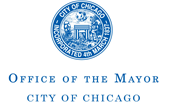After Drinking Water Contamination Crisis in Toledo, Mayor Emanuel and Great Lakes & St. Lawrence Cities Initiative Will Convene Mayors of the United States and Canada to Discuss Water Quality and the Preservation of Freshwater Resources
Mayor Rahm Emanuel today called on Great Lakes Mayors to come together for a summit on the protection and preservation of the Great Lakes in the wake of the recent water crisis in Toledo in which residents were instructed not to drink tap water.
“Access to clean drinking water is something that all residents expect when they turn on the tap. The crisis in Toledo is a stark reminder that our work to protect this critical resource is never done,” said Mayor Emanuel. “By convening the leaders of the municipalities that depend on this fresh water supply, we can most effectively discuss the strategies necessary to protect this vital water source for years to come.”
Emanuel’s administration has already begun outreach to mayors in the Great Lakes region to convene a meeting within the next few weeks to discuss water quality and the protection of our water supply. The summit will be co-hosted by the Great Lakes and St. Lawrence Cities Initiative, a bi-national organization dedicated to protecting and restoring the Great Lakes and St. Lawrence River.
“The time for action is now,” said Mayor John Dickert of Racine, chair of the Great Lakes and St. Lawrence Cities Initiative. “The Cities Initiative must work collaboratively with all levels of government to ensure no other city faces a similar crisis with their drinking water. Water is vital and we need to act now to prevent this from happening again.”
The Chicago Department of Water Management, under the direction of Mayor Emanuel, is currently implementing one of the largest investments in water infrastructure in the City’s history. The City is on course to rebuild 1,000 miles of 100 year-old water mains. This investment protects our drinking water and conserves water by reducing the amount of water lost through leaks and water main breaks.
In 2012, Mayor Emanuel announced a new Environmental Plan for Chicago, featuring water and wastewater as one of seven major sustainability categories. Goals include a decrease of water use by two percent annually, enhanced stormwater management to reduce overflows and basement flooding and protecting water quality and enhancing access to Lake Michigan. In April of this year, Mayor Emanuel announced the first projects to be funded under his $50 million Green Stormwater Infrastructure Strategy, which will incorporate green infrastructure into existing and ongoing capital projects. Green infrastructure will protect the environment, help to reduce flooding and improve the management of rainfall and runoff.
Chicago continues to take major strides to improve the long-term sustainability of its water system and our waterways. These efforts include renewing water infrastructure, conserving water, greening water operations, and sustainably managing stormwater.
Mayor Emanuel’s record in defending the Great Lakes illustrates that protecting Lake Michigan is one of his core priorities. In one of his first acts in Congress, he introduced the Great Lakes Restoration Financing Act of 2003. The bipartisan legislation would create a Great Lakes Advisory Board to evaluate and address the needs of the Great Lakes ecosystem and provide $4 billion in federal funds for Great Lakes’ restoration and revitalization. He also introduced legislation aimed at stopping invasive species introductions, halting sewage contamination, cleaning up toxic pollution and restoring wildlife habitats in the Great Lakes. As President Obama’s chief of staff, Mayor Emanuel helped designate $475 million in federal funding for Great Lakes cleanup and restoration, and allocate $25 million in Recovery Act funding to fight invasive species.
